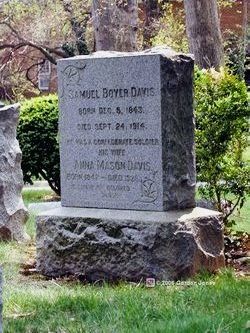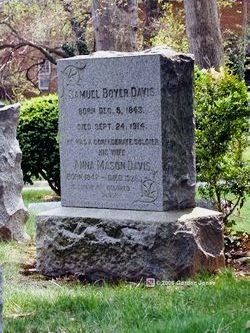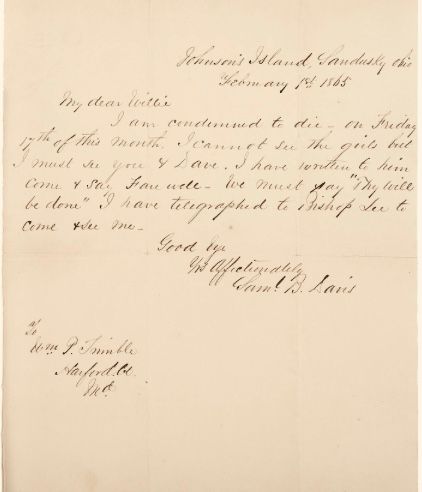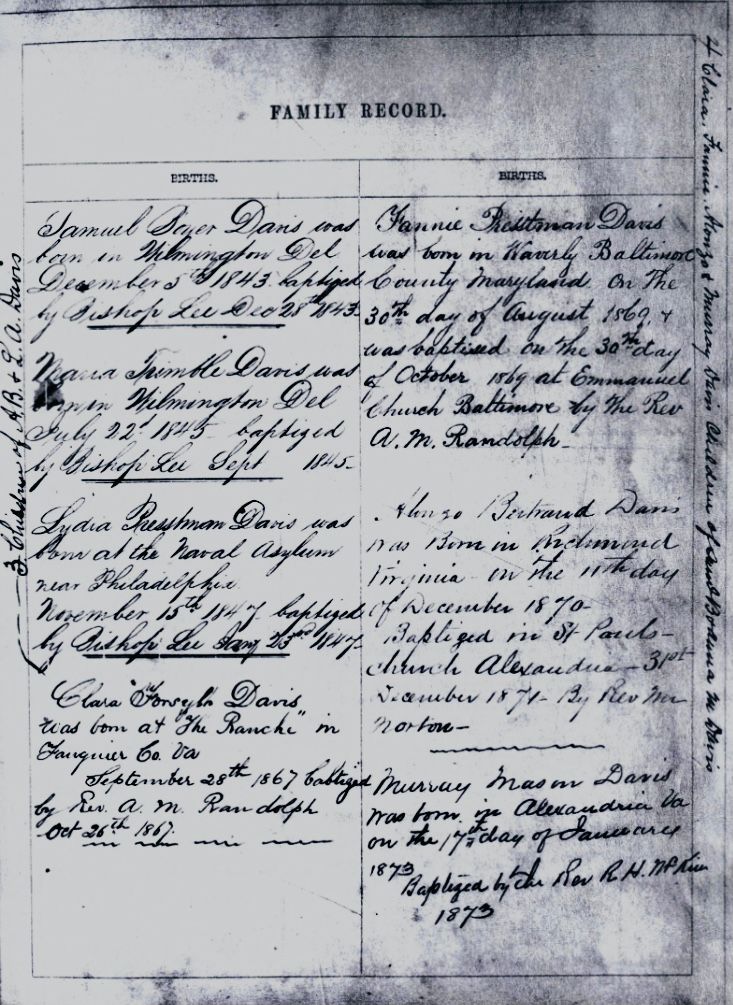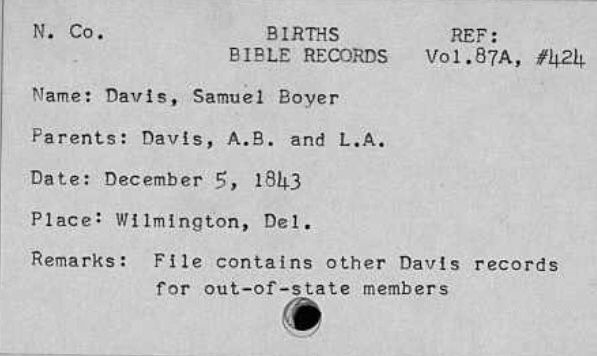Confederate staff officer, wounded in "Pickett's Charge" - Prisoner of War- Spy - Pardoned by Presidents Abraham Lincoln and Andrew Johnson.
Davis pondered his impending execution writing he was prepared to "die like a man and like a soldier."
Note: Captain Samuel Boyer Davis of Delaware, was a younger first cousin of Major Samuel Boyer Davis of Louisiana and Texas and Florian Davis of Louisiana. He also is the nephew of Confederate Lieutenant Colonel Stephen Wilson Presstman of New Castle, Delaware, grandson of Colonel Samuel Boyer Davis of Delaware and great nephew by marriage of Confederate General Isaac Ridgeway Trimble.
Alexandria Gazette 25 Sept. 1914 obituary
Wilmington (Del.) Morning News 13 Mar. 1950
Wilmington (Del.) Morning News 13 Aug. 1960
"Delaware's Samuel Boyer Davis: A Near Death Experience by Thomas J. Ryan (2013)
Author: Captain Samuel Boyer Davis
Original publication date 1892
Author John Bakeless. Published by the Lippincott Co., 1970, Philadelphia, Penna.
United States National Park Service records,
Staff Officers, Non-Regimental Enlisted Men,
First Lieutenant/Aide-de-Camp,
Captain/Assistant Adjutant General
Confederate staff officer, wounded in "Pickett's Charge" - Prisoner of War- Spy - Pardoned by Presidents Abraham Lincoln and Andrew Johnson.
Davis pondered his impending execution writing he was prepared to "die like a man and like a soldier."
Note: Captain Samuel Boyer Davis of Delaware, was a younger first cousin of Major Samuel Boyer Davis of Louisiana and Texas and Florian Davis of Louisiana. He also is the nephew of Confederate Lieutenant Colonel Stephen Wilson Presstman of New Castle, Delaware, grandson of Colonel Samuel Boyer Davis of Delaware and great nephew by marriage of Confederate General Isaac Ridgeway Trimble.
Alexandria Gazette 25 Sept. 1914 obituary
Wilmington (Del.) Morning News 13 Mar. 1950
Wilmington (Del.) Morning News 13 Aug. 1960
"Delaware's Samuel Boyer Davis: A Near Death Experience by Thomas J. Ryan (2013)
Author: Captain Samuel Boyer Davis
Original publication date 1892
Author John Bakeless. Published by the Lippincott Co., 1970, Philadelphia, Penna.
United States National Park Service records,
Staff Officers, Non-Regimental Enlisted Men,
First Lieutenant/Aide-de-Camp,
Captain/Assistant Adjutant General
Inscription
SAMUEL BOYER DAVIS
BORN DEC. 5, 1843
DIED SEPT. 14, 1914
HE WAS A CONFEDERATE SOLDIER
HIS WIFE
ANNA MASON DAVIS
BORN 1912 - DIED 1928
HE GIVETH HIS BELOVED
SLEEP
Gravesite Details
Burial Date: 09/26/1914
Family Members
Sponsored by Ancestry
Advertisement
Explore more
Sponsored by Ancestry
Advertisement
